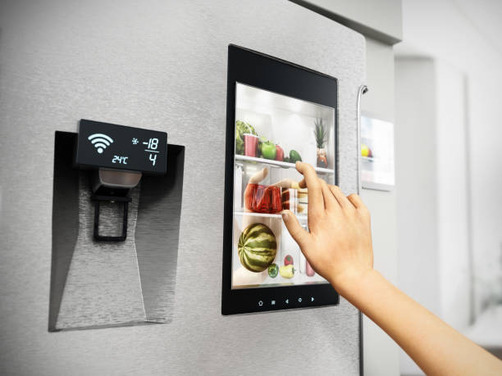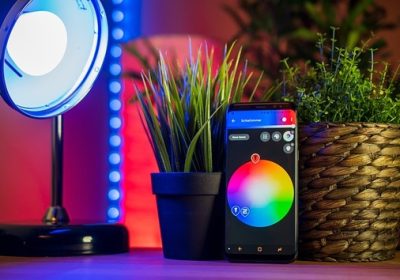Next-Gen Kitchen Appliances: Revolutionizing Home Cooking and Meal Prep

Over the past decade, there has been a significant evolution in the way we approach cooking and meal preparation. With the introduction of next-gen kitchen appliances, preparing meals has become more convenient, efficient, and enjoyable. From smart refrigerators to multi-functional cooking devices, the latest appliances have revolutionized the way we cook and eat. In this article, we will explore the various ways in which next-gen kitchen appliances are transforming home cooking and meal prep.
Smart Refrigerators
One of the most significant advancements in kitchen appliances has been the development of smart refrigerators. These appliances are equipped with sensors that monitor the contents of the fridge and keep track of expiration dates, helping users to avoid food waste. Some models also come with cameras that allow users to see the contents of the fridge remotely, making it easier to plan meals and grocery shopping. Additionally, some smart refrigerators come with built-in touch screens that can be used to access recipes, check the weather, and even stream music or movies.
Another exciting feature of smart refrigerators is the ability to integrate with other smart home devices. For example, users can connect their refrigerator to their Amazon Alexa or Google Home, allowing them to control the temperature, create grocery lists, and even place orders for delivery or pickup from their local grocery store. With the integration of AI technology, smart refrigerators are making meal prep and grocery shopping more efficient and convenient than ever before.
Multi-Functional Cooking Devices
Another significant advancement in next-gen kitchen appliances is the development of multi-functional cooking devices. These appliances can perform multiple cooking functions, such as pressure cooking, slow cooking, air frying, and more. This makes it easier to prepare a variety of meals and cuts down on the need for multiple appliances.
One example of a multi-functional cooking device is the Instant Pot, which has become wildly popular in recent years. The Instant Pot can be used for pressure cooking, slow cooking, sautéing, and more, making it a versatile and convenient tool for meal prep. Additionally, many Instant Pot models come with pre-programmed settings for specific types of food, such as rice, soup, and stew, making it even easier to cook a variety of meals with minimal effort.
Another popular multi-functional cooking device is the air fryer, which uses hot air to cook food, creating a crispy exterior without the need for excess oil. Air fryers are particularly useful for preparing frozen foods, such as french fries or chicken tenders, and can also be used to cook vegetables and meats.
Smart Ovens
Smart ovens are another example of next-gen kitchen appliances that are revolutionizing home cooking. These appliances are equipped with sensors and cameras that can monitor the cooking process, ensuring that food is cooked to perfection. Some smart ovens also come with built-in touch screens that can be used to access recipes, set cooking times and temperatures, and even preheat the oven remotely.
One example of a smart oven is the June Oven, which uses AI technology to cook food perfectly every time. The June Oven has a built-in camera that can recognize the type of food being cooked and adjust the cooking time and temperature accordingly. Additionally, the June Oven can be controlled using a smartphone app, making it easy to monitor the cooking process from anywhere.
Smart Coffee Makers
Coffee is an essential part of many people’s morning routines, and next-gen kitchen appliances are making it easier than ever to brew the perfect cup of coffee at home. Smart coffee makers are equipped with sensors that can monitor the brewing process, ensuring that the coffee is brewed to the perfect temperature and strength.
One example of a smart coffee maker is the Nespresso Vertuo, which uses bar code technology to adjust the brewing process based on the type of coffee capsule being used. Additionally, the Nespresso Vertuo can be controlled using a smartphone app, making it possible to schedule brew times and customize brewing settings. Some smart coffee makers can even be controlled using voice commands, making it easy to brew coffee hands-free.
Smart Dishwashers
Cleaning up after a meal can be a daunting task, but next-gen kitchen appliances are making it easier than ever to clean dishes. Smart dishwashers are equipped with sensors that can detect how dirty dishes are and adjust the wash cycle accordingly. Some smart dishwashers also come with built-in touch screens that can be used to select wash settings, monitor the progress of the wash cycle, and even receive notifications when the cycle is complete.
Another exciting feature of smart dishwashers is the ability to integrate with other smart home devices. For example, users can connect their dishwasher to their Amazon Alexa or Google Home, allowing them to start the wash cycle using voice commands.
However, it’s worth noting that with all the advancements in technology, it’s important not to overlook the basics of cooking. While these appliances can certainly make cooking easier and more efficient, they cannot replace the importance of using fresh ingredients, proper seasoning, and other essential cooking techniques.
Additionally, next-gen kitchen appliances can come with a higher price tag than traditional appliances, so it’s important to consider your budget when shopping for these appliances. However, the convenience and efficiency they provide can make them well worth the investment in the long run.
It’s also worth noting that next-gen kitchen appliances have the potential to make cooking more sustainable. Smart refrigerators can help reduce food waste by alerting users when food is about to expire, prompting them to use it before it goes bad. Multi-functional cooking devices can help reduce energy consumption by replacing the need for multiple appliances. And by making it easier and more convenient to cook at home, these appliances can encourage people to opt for home-cooked meals over takeout or pre-packaged foods, which can lead to a reduction in packaging waste.
In addition to their practical benefits, next-gen kitchen appliances also offer a range of exciting features that can enhance the cooking and dining experience. For example, some smart refrigerators come equipped with built-in screens that can display recipes, cooking tutorials, and even TV shows or music. Some multi-functional cooking devices come with preset cooking programs that can be customized to suit your preferences, and some smart ovens can even be controlled remotely using a smartphone app.
It’s also worth mentioning that next-gen kitchen appliances can have a significant impact on people’s health and well-being. By making it easier to prepare fresh, healthy meals at home, these appliances can help people make better food choices and improve their overall diet. For example, a smart refrigerator that alerts users when their produce is about to spoil can encourage them to use it before it goes bad, leading to less food waste and more healthy meals. And by making it easier to cook at home, next-gen kitchen appliances can help people avoid the unhealthy ingredients and additives often found in processed or pre-packaged foods.
Next-gen kitchen appliances also have the potential to make cooking more accessible to people with disabilities or mobility issues. For example, a smart oven that can be controlled using a smartphone app or voice commands can be a game-changer for someone who has difficulty reaching or using traditional oven controls. And a multi-functional cooking device that can replace the need for multiple appliances can be especially helpful for people with limited counter or storage space.
Another benefit of next-gen kitchen appliances is their potential to make cooking more efficient and less time-consuming. Many of these appliances are designed to automate certain cooking tasks or reduce the need for multiple appliances, making it easier to prepare meals quickly and with minimal effort. For example, a multi-functional cooking device that can steam, bake, and roast all in one can save time and space in the kitchen, while a smart oven that can preheat itself can save time and eliminate the need to monitor the oven temperature.
Moreover, next-gen kitchen appliances can help people with busy schedules or hectic lifestyles to stay on top of their meal planning and preparation. Smart refrigerators can suggest recipes based on the ingredients they have on hand, while multi-functional cooking devices can be programmed to start cooking at a specific time, allowing users to come home to a freshly cooked meal. And with the ability to control these appliances remotely using a smartphone app, users can adjust cooking settings or start a new cycle even when they’re not at home.
Next-gen kitchen appliances can also provide a more personalized cooking experience. Smart appliances can learn a user’s preferences and adjust cooking settings accordingly, resulting in meals that are tailored to their tastes. For example, a smart oven that remembers how a user likes their steak cooked can ensure that each steak is prepared exactly to their liking. And with the ability to customize cooking programs and settings, users can experiment with new recipes and techniques, ultimately improving their culinary skills and expanding their repertoire.
Conclusion
In conclusion, next-gen kitchen appliances are transforming the way we cook and prepare meals at home. From smart refrigerators to multi-functional cooking devices, these appliances offer a range of benefits that make cooking easier, more efficient, and more enjoyable. They can also promote sustainability, health and well-being, accessibility, and personalization. As technology continues to evolve, we can expect even more exciting advancements in kitchen appliance technology that will further enhance the cooking and dining experience.









